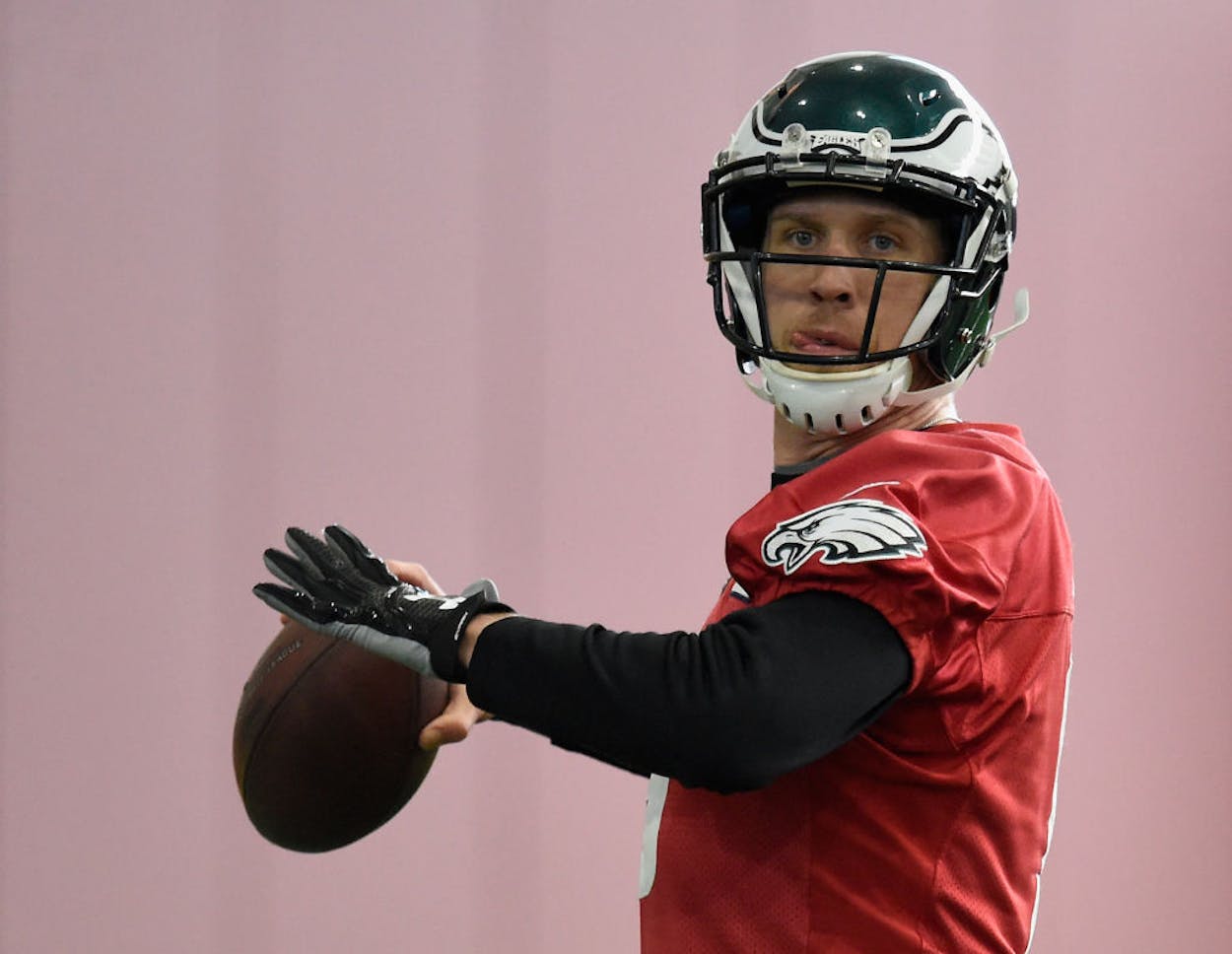Nick Foles lost the last championship he played in. There’s no shame in it—a lot of people lost to Southlake’s Carroll High School in the mid-aughts. During the seven years that Todd Dodge was the head coach, the team won four state championships. For a five-season stretch of his run, from 2002 to 2006, the team went 79-1. (They lost the 2003 championship to Katy by one point.) In that 2006 championship game, Foles’s Westlake Chaparrals were the forty-eighth consecutive team to lose to Carroll.
The Austin native will face another dynasty on Sunday when he leads the Philadelphia Eagles against Tom Brady’s New England Patriots. The last half decade of Super Bowl titles have largely pitted a young quarterback up against the twin titans Peyton Manning and Brady. Russell Wilson, Cam Newton, Matt Ryan—all Pro Bowl performers, superstars in their own right—have fought this battle. But Foles, who managed to subvert his path as a career backup after failing to live up to his potential in his first and second chances, wasn’t supposed to be in this position.
Foles isn’t the first backup quarterback to start in a Super Bowl (in fact, once upon a time, Tom Brady did that). He’s not the first one to take over for an established starter who went down to an injury late in the season (Jeff Hostetler won Super Bowl XXV in the same position), or even the first player who was at one point considered a bust to do so (Trent Dilfer, after six mediocre seasons in Tampa, took over quarterback duties for the Ravens midway through the 2000 season). But he’s the first one to look this good while doing it.
Foles relieved injured starter Carson Wentz in week 14, and took over the starting position the next week when it was revealed that Wentz tore his ACL. In that game, against the hapless Giants, he threw four touchdowns, no interceptions, and completed 63 percent of his passes. The following weeks were less impressive, but he’s shined in the playoffs. Against a tough Falcons team, he played mistake-free ball, completing 76 percent of his passes for 246 yards in a 15-10 win. Then, as an underdog against the Vikings, Foles lit up the board, throwing for three touchdowns, no interceptions, and a 78 percent completion rate.
It was a sharp turn from Foles’s career up to that point. After an impressive debut with the Eagles—he thrived in 2013, making a Pro Bowl—he began to struggle. He was sent him to the Rams in exchange for quarterback Sam Bradford—bundled with a second round and fourth round draft pick in the deal (and getting an extra fifth rounder in return)—and he was eventually benched for Case Keenum. He landed back in Philadelphia after a year with the Rams and a year as a backup in Kansas City, signing a two-year deal to back up Wentz.
Most of the time, that’s the end of a quarterback’s story—he floundered in the starring role, then took a gig backing up a top draft pick. It seemed that he’d live out his days in the NFL as a locker room guy—Foles might have been good to have around, but no one expected him to lead a team to the Super Bowl.
But Foles has. The Eagles aren’t winning games based solely on the strength of their defense (though it’s impressive). Foles’s arm is the key to the team’s success in the post-season. The legend may go that defense wins championships, but tell that to the Jacksonville Jaguars.
Yet whatever happens on Sunday could still be chalked up to an aberration. Barring an unexpected medical setback for Carson Wentz, Foles could throw for 500 yards and six touchdowns in the Super Bowl, and he still wouldn’t be the Eagles’ starter going into 2018. He may serve as Wentz’s backup for another year, or the Eagles may find a trade partner who values what Foles has showcased in this post-season. There’s never been a quarterback in the Super Bowl whose future was more uncertain, and less in his own hands.
But Foles can use his unique situation to his advantage as he gears up for the Super Bowl. When Joe Flacco won Super Bowl XLVII, his career was at a turning point—all he needed to do to ensure that it turned in his direction was to win. Foles, meanwhile, can embrace his unclear career trajectory to temper the typical pressure that a Super Bowl quarterback faces. Not to mention that he’s already dreamed of life after football. He talked openly about wanting to retire after leaving the Rams, and explained that he “had no love for the game” after his experiences in the early part of his career. Foles had to be coaxed back into the game by Andy Reid, the Kansas City coach who drafted him with the Eagles as a rookie.
Foles’s Super Bowl might be like his high school state championship game for him in more ways than one. He’s taking on a legendary super power in the sport on the big stage. And crucially, like a promising high school player, no matter what happens in this game, it won’t define any lasting legacy. In that sense, for Nick Foles, it really is all just a game.
- More About:
- Sports








